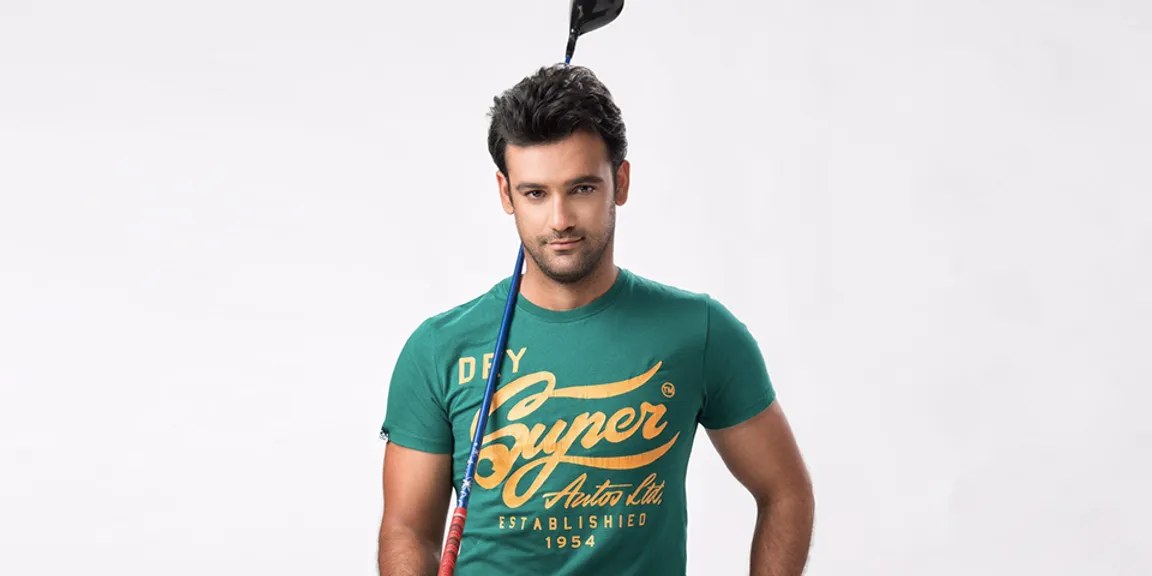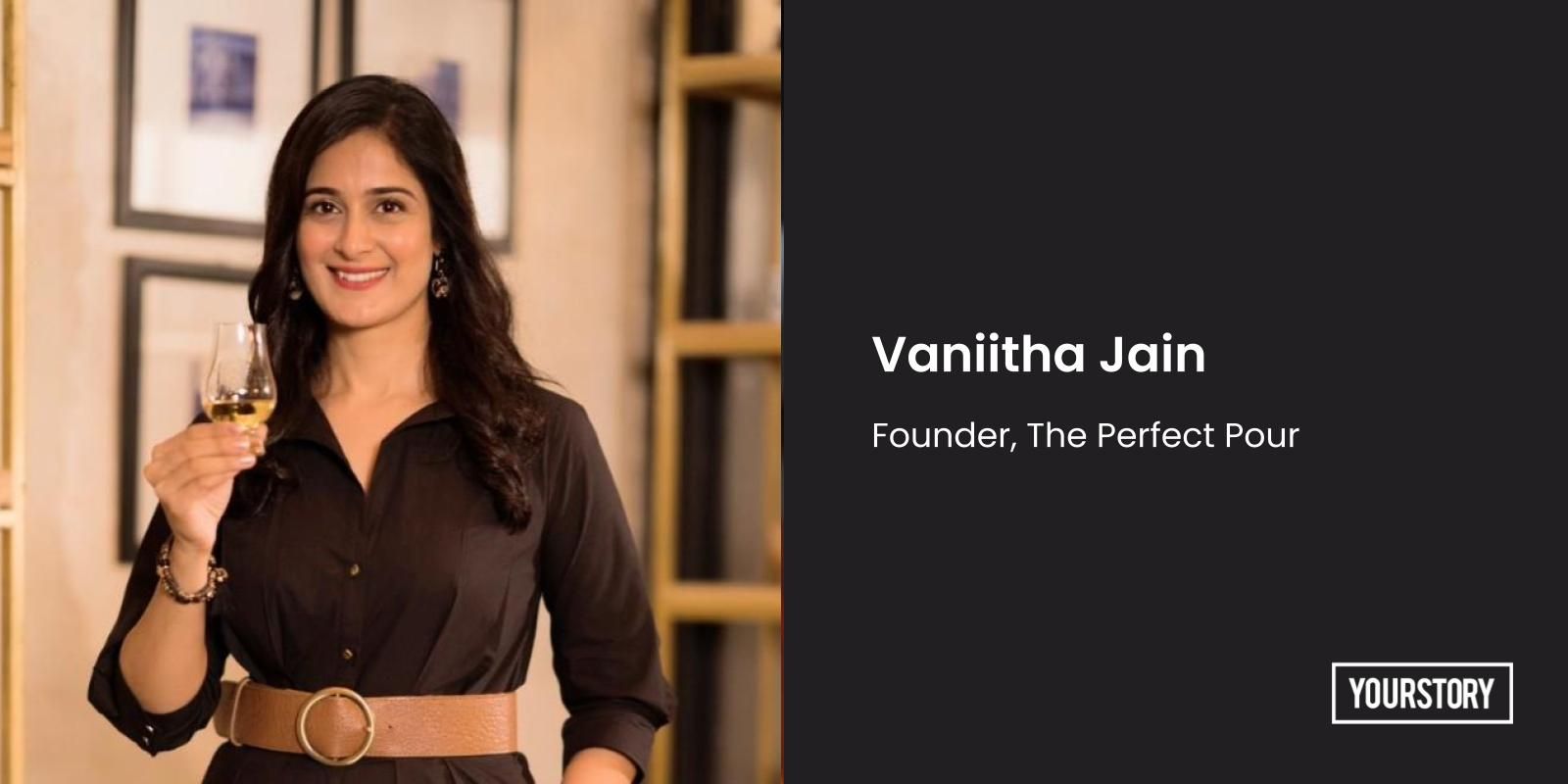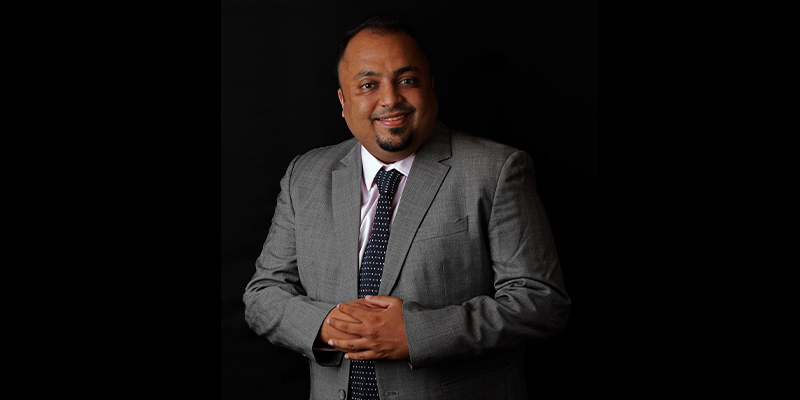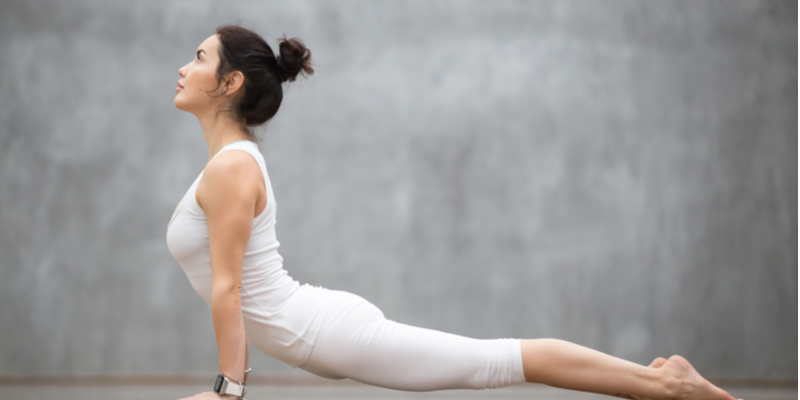After retiring at 26, how Olympic swimmer Rehan Poncha is gearing up for a second act
In an exclusive interview with YS Weekender, Rehan Poncha reveals why he traded swimming for golf and tells us about his dreams of representing India at the Olympics again.
After representing India at the 2008 Beijing Olympics, Rehan Poncha, the poster boy of Indian swimming, had to make a big decision about his career. But instead of succumbing to the short shelf-life of a sports career, the Olympics swimmer and recipient of the Arjuna Award, chose to reinvent himself at the age of 26 and switch careers and try a completely different sport, golf.
It's been almost a year into golfing, and Rehan is already chalking out the next innings of his career as a sportsperson. His dream, in his own words, is to be a “double Olympian”.
“After swimming, I want to be good enough to represent India in a second sport, which is golf,” he quips, as he tells us about his current passion and the extensive training that he has been undertaking now.
Rehan’s goal is to clear the National Qualifiers for the Amateur Circuit in July next year, following which he hopes to join the National Circuit and compete with some of the best golfers in the country. A step, which we can only hope, brings him closer to his Olympics dream. In an exclusive interview with YS Weekender, Rehan Poncha tells us about his plans for the next phase of his career, his fitness secrets, and his coaching clinic, ‘SwimSmart with Rehan Poncha’...

Rehan Poncha
YS Weekender: Why did you choose swimming over other activities?
Rehan Poncha: I was seven years old and my parents wanted me constructively occupied. They offered me a choice between a swimming class and a dance class. I chose to dance, but I was very shy and very young, and the teacher’s direction to duet dance with a girl terrified me! So, I quit dance and chose swimming and that’s one reason I did so! I have also always been very competitive. I didn't see a medal at the end of a dance class, but I knew there were medals and trophies after a swimming class. Therefore, swimming won.

YSW: How do you stay fit?
RP: The key to fitness at any level is consistency. My fitness regime is divided into three areas, nutrition, workout and rest. I start by setting clear goals and identifying steps and milestones that lead up to these with timelines. I make sure my goals are realistic and specific, which makes them more likely to be attainable.
YSW: How does it feel to be an Arjuna Award achiever at such a young age?
RP: It’s every athlete’s dream to represent the flag at the Olympics. It is the most prestigious sporting event in the world. To receive an Arjuna Award from the President of your country for your outstanding contribution to sport is not only a matter of great pride but it is also very humbling. I still get goose bumps thinking about that day!
YSW: Can you tell us about the initiative - Swim Smart

Rehan started a programme with young athletes called SwimSmart with Rehan Poncha
RP: I started ‘SwimSmart with Rehan Poncha’ five years ago. I had stopped swimming competitively. But I missed swimming and I also wanted to give back to the sport that had given me so much.

I started mentoring and working with young athletes who were swimming at the state and national levels on various aspects of swimming from mental fitness to stroke correction and developing fitness, endurance and speed. Kids related to me as a mentor very well, perhaps because the journey they were on was the same as mine, and so the connect was very real. The initiative has become very successful. I work with athletes from around the country and it’s a very rewarding and fulfilling experience.
YSW: Is it better to stick with the same exercise routine to stay fit?
RP: If you are an elite athlete, then your fitness regimen will be designed specifically based on your sporting goals and performance. In swimming that could mean working with resistance bands that mimic the stroke on land and so on. If your goal is to be generally fit, you can be far more creative and have some fun with your routine.

But it is important that you’re not trying to do too much. You might reach your goals in 6 or 12 weeks but after a period, your body will get used to the fitness routine and diet. At that point, you should change and mix up your routine. Your body will go into shock and then re-adapt to the challenge of losing weight again.
YSW: How does swimming help you in your fitness goals?

Rehan believes that swimming works on all the muscles of the body
RP: Swimming at any level is beneficial. Firstly, you burn more calories as you are working against resistance. Secondly, you are not working on a hard surface like a treadmill or track; instead you work with the natural buoyancy of water, so you protect your muscles from injuries. Lastly, swimming increases the flexibility of your muscles and joints which prevents injuries. It’s also great for older people in recovery from falls etc. Swimming also works on all the muscles of the body. There are tons of reasons why you should swim.
YSW: Why do you love swimming? What does it do for you?
RP: I have always felt a special connect with water and loved the pool. Throughout my training, I remember feeling that the water was my element, and that this was my way of connecting with it.

The sport has given me so many wins and kept me in the spotlight, and as a Leo, that’s something I enjoy tremendously! But the real medal from pursuing any elite sport is the character it builds. It has taught me the value of dedication, discipline and perseverance. I share these learnings with swimmers when I coach them through Swim Smart and in talks to motivate corporate audiences and college or school children.
YSW: Do you think it is important to reinvent yourself?
RP: There’s a quote I like that very much says, “Success is never final, learning never ends.” After playing competitively and reaching swimming’s highest level for 20 years, I have decided to play another sport. Clearly, reinvention is important for me. More importantly, you should have the desire to constantly learn.
YSW: What was the defining moment in your sports history?
RP: There are so many turning points but representing my country at the Olympics, has been the biggest one. Second, winning the Arjuna Award in 2010. Thirdly, the two National Games Best Athlete trophies I got from the then Prime Ministers of India, Mr. Vajpayee in 2002 and with Mr. Manmohan Singh in 2007.
YSW: Tell us about your Olympic training?
RP: Olympic training was 15 years of competitive swimming, racing, sacrifice and struggles. I worked unbelievably hard. At the peak of my career I would swim close to 16 kilometers per day and put in 2 hours at the gym. It is very difficult to put the 15 years of hard work into a 20 second capsule. But the culmination of actually swimming for the country on this very prestigious platform was extremely special. Only 7 athletes have actually made the qualification times needed to swim at the Olympics since independence. So, I was happy to have made the dream a reality.
YSW: What is your advice for young athletes?

RP: As a coach and mentor, I see several young athletes who are very talented and get initial results very quickly. But when results don’t come in that speed, they get very disappointed and they stop. My advice to them is to stay patient and persevere. A lot of growth comes from your losses. Learn the ability to lose and learn from that loss so that you can bounce back again stronger than ever before.
YSW: What is your advice on the best diet to stay slim, fit and healthy?
RP: Today most people know what healthy food is, staying away from refined sugars, avoiding deep fried food, ensuring you are hydrated etc. I would recommend working with a professional nutritionist to set a diet plan that is effective for you and be inspired by it. Getting a professional to help will ensure that your diet is tailored made for you.
YSW: Who are your role models and why?
RP: I never had a role model. But I did greatly admire Alexander Popov, the Russian sprint champion in freestyle. I honestly fell in love with the ease with which he swam. I am sure he was putting a lot of effort, but he just made it look so easy. Today, I am a big fan of Rory Mcilroy. He is a young, talented Northern Irish golfer, who is very aggressive and plays with a lot of heart.
YSW: Why is it so important to be fit?
RP: No matter what you are doing in life, being fit will help you to do it better. If you are a student there will be more oxygen going to the brain, and you will get better academic results, if you are a housewife, you will have more energy to get through your daily chores, if you are an athlete, your performance will significantly improve with fitness. Fitness will fill you with self-confidence and make you feel good about yourself.
YSW: What are your current challenges and assignment?

Rehan plans to get into competitive golf at the national level
RP: National Qualifiers for the Amateur Circuit will happen in January and July of 2020. I must make that to start competing on the National Indian circuit. Unfortunately, a bad bout of dengue has set me back a bit but I am keeping my fingers crossed and hoping to get back to training soon.
YSW: What are some of the challenges you faced during your training days?
RP: The biggest challenge was sacrificing the things that were fun at that moment and missing out on holidays with friends and family, straining from week to week and year to year without too much of a break. You have to be very committed.
YSW: Can you tell us about your motivational talks? What is the most important advice you like to give?
RP: Pursuing an elite sport teaches you a number of life lessons. I have found that my learnings have great resonance with corporates and students who are pursuing excellence.

From the importance of discipline, dealing with adversity, learning from failure, working in a team to sacrificing the short-term distractions in pursuit of the long-term goal, there are many lessons which hold valuable parallels in corporate life. My biggest learning is that success comes to you only when you persevere, sometimes it comes quickly, and sometimes it takes time. Set goals, map your journey with realistic, time bound goals and then stay the course with one pointed focus. The rewards will follow.
YSW: What do you like to do when you are not working?
RP: I enjoy watching golf, and also follow tennis and Formula One. I have a passion for collecting watches maybe because I have always worked with time through sport. I read a lot of watch reviews, follow the trends and love to learn about the history of timekeeping. I also love travel and blog on TravelWithRehan.
YSW: Which moment in your illustrious career is the one that you remember with greatest pride?
RP: Qualifying for Olympics was an unforgettable moment. I remember that day so clearly. I had been swimming for 17 years. I was on top of my game in 2004, the best in India and had tried hard to qualify, but I wasn’t able to swim the times required. It was very disheartening, and I thought of quitting. I took some time off, but I missed the sport.

So, I decided to try again, giving myself 4 more years to be an Olympian. I had 4 qualifying events leading to the Olympics and which each race I got closer and closer. But it was only on the very last qualifying event in Sydney, just a day before the final cut off that I swam faster than the cutoff for the 2008 Beijing Games.
I remember touching the wall and being unable to look at the timing display. Instead I looked at the gallery and saw my father and coach wildly cheering. I knew then that I had made it. This is a most precious memory from my career.
YSW: What are your plans for the future?

Rehan started playing golf at the age of 27
RP: I believe in big dreams. I’ve always had these. And now my dream is to be a double Olympian. After swimming, I want to be good enough to represent India in a second sport, golf. I know it is very hard because I started at the age of 27 and am competing with boys who started at 7. So, it is an extremely challenging goal but I’ve never shied away from challenges. My short-term goal is to play the qualifier in July 2020. If I make the cut, I join the national circuit which opens up 14 to 16 national tournaments. Here, I get to compete with the country’s best.









